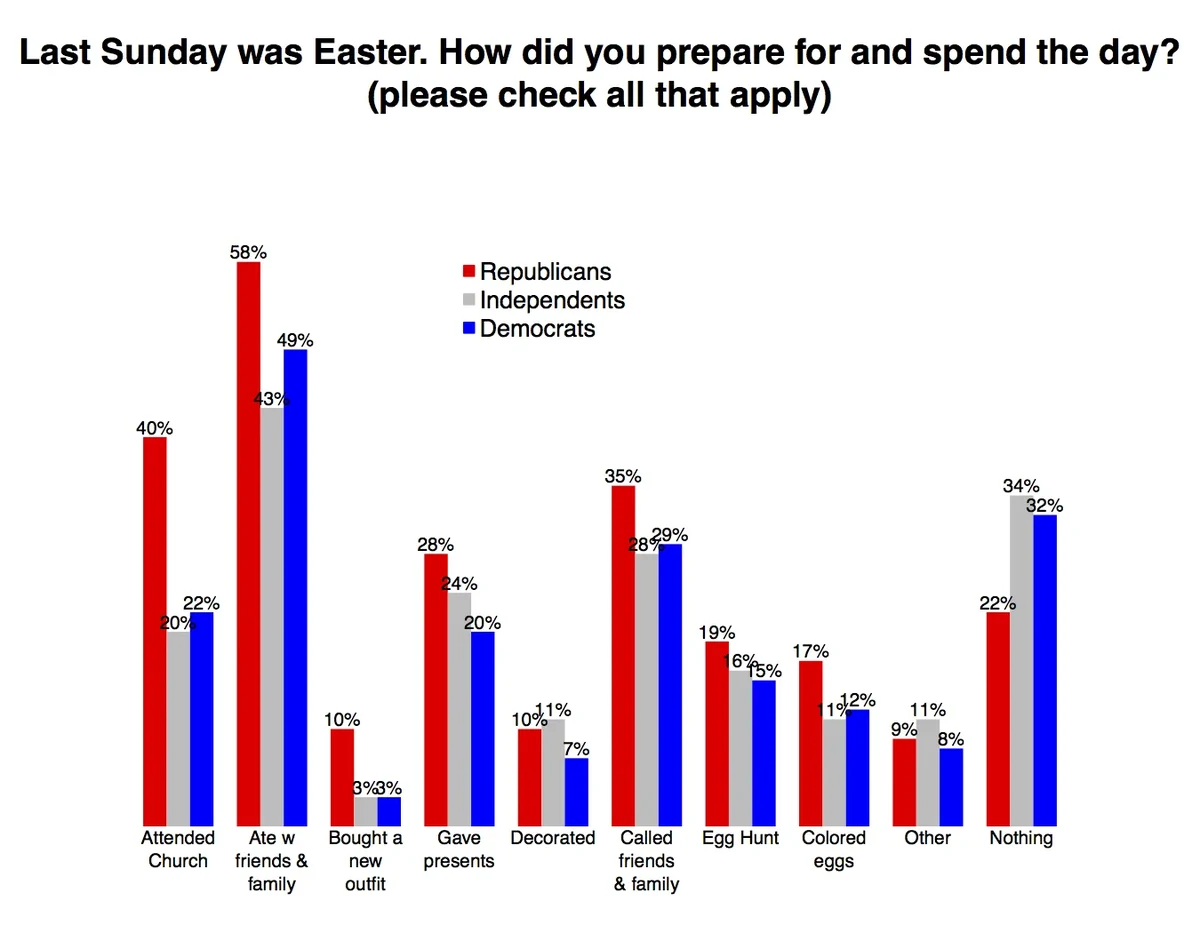Religion may divide the major political parties, but just how deep do these divisions go? In a recent YouGov survey, we seized the opportunity to find out how people spent Easter by asking respondents what they did to celebrate the holiday.
How different are the religious lives of Democrats and Republicans? In one important aspect, they are significantly different. To celebrate Easter, 40% of Republicans attended church, while only 22% of Democrats did so. Republicans were also more likely to buy a new outfit for Easter, which is likely an artifact of church attendance.
Once we explore behavior beyond church attendance, the differences between the parties begin to diminish. Similar proportions of Democrats and Republicans celebrated Easter by decorating their home for the holiday and participating in an egg hunt, and Republicans were only slightly more likely to call friends or family to wish them a Happy Easter. Although significantly more Republicans shared a special Easter meal with family or friends than Democrats, about half of Democrats still had an Easter meal. In other words, aside from church attendance—which is, admittedly, a big aside—Democrats and Republicans commemorated one of Christianity’s most important religious celebrations in fairly similar ways. While these results include the full 1,000 respondents—including non-identifiers and those who belong to religions that do not celebrate Easter—the same general trend appears when looking specifically at Christians.
To the extent that Americans differ in religious observance, the important differences are not necessarily between Democrats and Republicans but between Republicans and everyone else. Citizens who identify as Independents look remarkably similar to Democrats in their observance of the Easter holiday—even with regard to church attendance. Typically, we think of Independents as lying somewhere between Democrats and Republicans on most issues. But, in the religious realm, this simply isn’t the case.
Not surprisingly, our survey data suggest that claims about the polarization of America are somewhat overblown. Republicans certainly attend church more than Democrats, but in other respects, participation in religious festivities does not differ all that starkly between members of the two parties. And, to the extent that America is divided between the more religious and the less religious, the division is not between Republicans and Democrats but between Republicans and everyone else.










